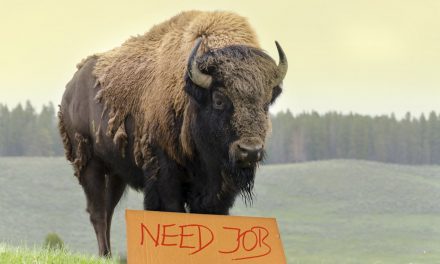Every month, the National Federation of Business releases its small business optimism index. There was not much optimism to be found in releasing the latest Small Business Optimism Index from NFIB. Still, the Wyoming state director for the association that conducts the monthly poll says businesses can take some comfort in initiatives recently taken by the state’s Legislature and governor.
“From a national standpoint, this report was not the news we were hoping for,” said NFIB’s Wyoming State Director Tony Gagliardi. “Businesses are trying desperately to reopen and survive this pandemic. Wyoming small businesses, however, can take some comfort in having a proactive Legislature and governor that have acted swiftly by-passing liability protection from unfair COVID lawsuits.”
The Wyoming Legislature introduced five bills this session to regulate public health orders that should give small business owners some hope. Rep. Chuck Gray, R-Casper, introduced House Bill 98. This bill would require the Wyoming Legislature to ratify any public health order that exceeds ten days. Sen. Troy McKeown, R-Gillette, proposed Senate File 80, requiring public health orders to give a 48-hour notice and to be ratified if the order exceeds 30 days. The bill also allows counties to opt-out of the public health order if the county has a majority of the board of county commissioners.
Rep. Steve Harshman, R-Casper, put forth House Bill 113 that requires the public health orders to be signed by the governor and declaration of a public health emergency. The bill also limits public health orders to 30 days; the order can be extended for 30 days if ratified. Rep. Dan Laursen, R-Powell, submitted House Bill 56 to limit public health orders to 15 days unless ratified.
The final bill sponsored by the Joint Corporations and Elections and Political Subdivisions Interim Committee, Senate File 30, would create a pandemic review task force to overlook public health orders.
Key findings include in the Index were:
- Four of the 10 Index components declined, two improved, and four were unchanged.
- The NFIB Uncertainty Index decreased 2 points to 80.
- Sales expectations for the next three months declined 2 points to a net negative 6%.
- Earnings trends over the past three months declined 2 points to a net negative 16%, reporting higher earnings compared to the prior period.
The Optimism Index declined in January to 95.0, down 0.9 from December and three points below the 47-year average of 98. Owners expecting better business conditions over the next six months declined seven points to a net negative 23%, the lowest level since November 2013. The net percent of owners expecting better business conditions has fallen 55 points over the past four months.
“As Congress debates another stimulus package, small employers welcome any additional relief that will provide a powerful fiscal boost as their expectations for the future are uncertain,” said NFIB Chief Economist Bill Dunkelberg. “The COVID-19 pandemic continues to dictate how small businesses operate and owners are worried about future business conditions and sales.”






Recent Comments